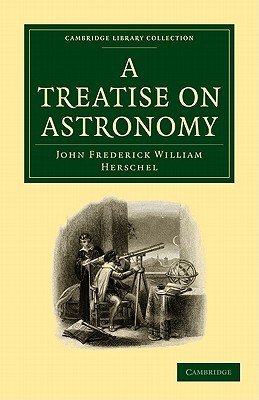
- We will send in 10–14 business days.
- Author: John Frederick William Herschel
- Publisher: Cambridge University Press
- ISBN-10: 1108005543
- ISBN-13: 9781108005548
- Format: 14 x 21.6 x 2.5 cm, minkšti viršeliai
- Language: English
- SAVE -10% with code: EXTRA
Reviews
Description
Astronomer and philosopher Sir John Herschel (1792-1871), the son of William and the nephew of Caroline, published his 1833 Treatise on Astronomy in the 'Cabinet Cyclopaedia' series of which the first volume had been his enormously successful Preliminary Discourse on the Study of Natural Philosophy. He is regarded as the founder of the philosophy of science, and made contributions in many fields including mathematics, the newly discovered process of photography, and the botany of southern Africa, which he studied while making astronomical observations of the southern hemisphere, and where he was visited by Darwin and Fitzroy on the Beagle voyage. It was however as the natural successor to his father's astronomical studies that he is best remembered, and this book, which is written for the interested lay person, places strong emphasis on the importance of accurate observation and on avoiding preconceptions or hypotheses not based on such observation.
EXTRA 10 % discount with code: EXTRA
The promotion ends in 21d.05:13:25
The discount code is valid when purchasing from 10 €. Discounts do not stack.
- Author: John Frederick William Herschel
- Publisher: Cambridge University Press
- ISBN-10: 1108005543
- ISBN-13: 9781108005548
- Format: 14 x 21.6 x 2.5 cm, minkšti viršeliai
- Language: English English
Astronomer and philosopher Sir John Herschel (1792-1871), the son of William and the nephew of Caroline, published his 1833 Treatise on Astronomy in the 'Cabinet Cyclopaedia' series of which the first volume had been his enormously successful Preliminary Discourse on the Study of Natural Philosophy. He is regarded as the founder of the philosophy of science, and made contributions in many fields including mathematics, the newly discovered process of photography, and the botany of southern Africa, which he studied while making astronomical observations of the southern hemisphere, and where he was visited by Darwin and Fitzroy on the Beagle voyage. It was however as the natural successor to his father's astronomical studies that he is best remembered, and this book, which is written for the interested lay person, places strong emphasis on the importance of accurate observation and on avoiding preconceptions or hypotheses not based on such observation.


Reviews